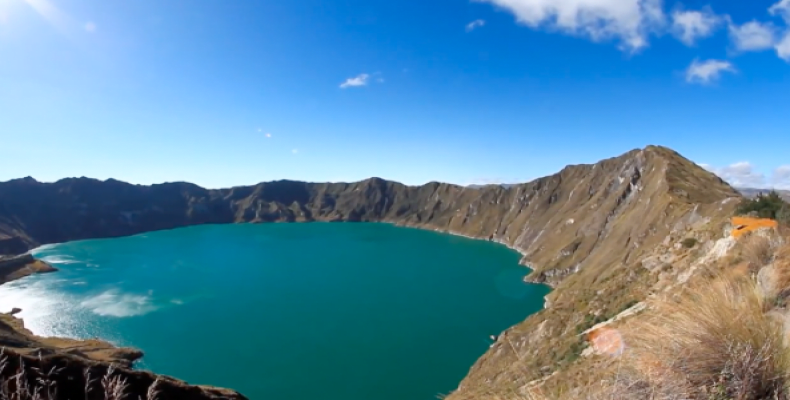Quito, May 8 (teleSUR-RHC)-- Set in the highlands about four hours south of Quito is the community and crater lake of Quilotoa. Consistently voted as one of Ecuador's best attractions, the lake offers hikes, horseback rides and kayaking. With a history of migration due to a lack of economic opportunity in the region, members of the community of Quilotoa like Maria Pastuya have begun working to make ecotourism an industry that preserves the environment, promotes their culture and stimulates the local economy.
Pastuya told teleSUR English: "We need to work more with tourism, so that we are not forced to migrate, to work in other places. For us, in ecotourism we can work with crafts, and serve our typical foods for everyone, so we are inviting tourists to come to Quilotoa, we will be waiting for them with open arms."
The Ministry of the Environment and Ministry of Tourism have joined forces to make ecotourism a viable option for communities such as Quilotoa, which was given solar panels to help support their growing tourism industry.
Ecuador is the first country in South America to become part of the Global Council of Sustainable Tourism, and the ministries are working with communities to help them meet quality standards.
The Ministry of the Environment is pushing forward the quality brand Green Point, which endorses sound environmental practices, to support those communities on the periphery of protected areas to benefit from regional tourism. Since entrance fees were eliminated in 2012 for protected areas, visitors spiked from 150,000 in 2012 to last year standing at 1.5 million, providing opportunities for those communities seeking to stimulate their economies.
With the Galapagos Islands, the coast, the highlands and Amazon regions, Ecuador, smaller in size than the U.S. state of Nevada, is a country with high biodiversity. The government is working to support local communities to develop responsible and sustainable tourism industries that stimulate rural economies, conserve the environment and protect local cultures.


